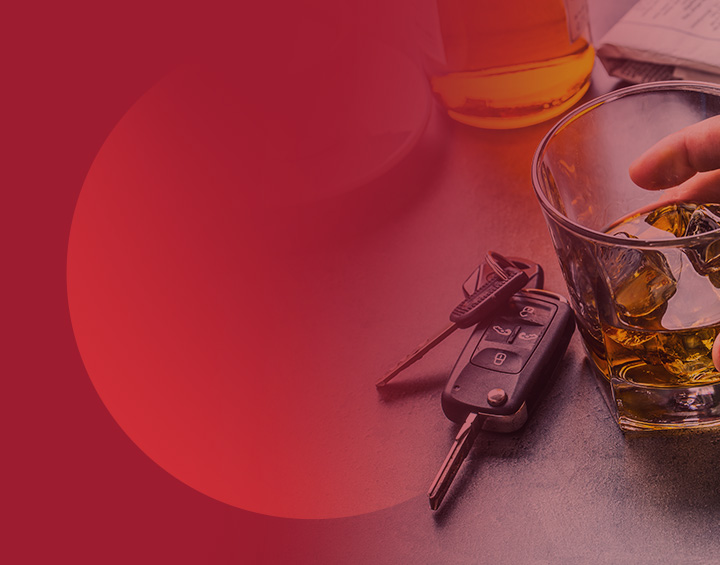
Oklahoma Impaired Driving Accountability Program
DUI Defense Lawyers Who Can Help Save Your License
Under Oklahoma law, if an individual’s driving privileges are revoked due to a Driving Under the Influence (DUI) or being in Actual Physical Control (APC) charge, they are required to enroll in the Impaired Driver Accountability Program (IDAP). This program is administered by the Oklahoma Board of Tests and requires the installation of an ignition interlock device in any vehicle the individual drives during the revocation period. The individual will be monitored while on the program and can have the program extended for program violations.
There are allowances for driving an employer owned without an interlock device, however this only applies to first time DUI or APC revocations, and the company is not owned by the individual or individual’s family member.
Effective November 1, 2022 an individual can forego challenging the revocation of their license and enter into the IDAP program directly to keep the revocation from appearing on their driving record. Under current law this must be done within 30 days of arrest, and only applies to a first time revocation or a person with no revocations within the past 10 years, and non-CDL holders.
Our general recommendation is to not sign up for the program until you have had the opportunity to discuss your case and the ramifications with our experienced DUI attorneys at Hunsucker Legal Group before signing up for the IDAP program. Every case is different but HLG has been very successful in fighting the revocation and preventing the loss of license. The decision to enter the program should be an informed decision and not one that is automatic.
What Is IDAP?
Under IDAP, a person may avoid driver’s license revocation after a DUI or APC arrest by installing an ignition interlock device in their vehicle for the period in which their license would have otherwise been revoked. So, an IDAP participant would need to install an ignition interlock device in their vehicle for 180 days for their first-time DUI or APC arrest. For a second or third DUI or APC arrest within a 10-year lookback period, an individual would need to install the ignition interlock device for one or two years, respectively.
If you have been arrested for DUI, our lawyers can work to save your license and avoid the need for an ignition interlock device as part of the Oklahoma Impaired Driving Accountability Program. Schedule your free, no-risk consultation by calling (405) 544-2992 or contacting us online.
What Is an Ignition Interlock Device, and How Do They Work?
An ignition interlock device is basically a breathalyzer that is installed in a car. It interrupts the signal between the ignition and the starter until it receives a valid breath sample. After the car has been started, the device may randomly require a second test. This is referred to as a rolling retest and can occur five to 15 minutes after the engine starts running.
Ignition interlock devices use fuel cell technology as a sensor to measure alcohol. It is an electrochemical device. Alcohol has a chemical oxidation reaction when it contacts a catalytic electrode surface (platinum), which generates an electrical current. The device measures this current and converts it to an alcohol level. This technology is not as reliable or accurate as infrared spectroscopy technology, and many things can cause a false reading if proper procedures are not followed.
In Oklahoma, the devices are set at a .025% BAC level. If the person blowing is in excess of the limit, the vehicle will not start. If this occurs three times within a 15-minute span, it will be considered a violation. The rolling retest is also set at .025% BAC. If someone is over the limit on the initial retest, they will have to take it again within five minutes, or it will be considered a violation. If someone tests over the limit during the second retest, the vehicle will not turn off, but it will either flash its lights, emit a constant noise, or honk the horn, depending on the device. If there is a violation, the vehicle will need to be taken to a monitoring center within five days.
You must stay violation-free to complete IDAP. If you have a violation during the last 90 days of the program, it will extend the restriction by an additional 90 days for each violation. These violations can be contested by requesting a hearing.
How Do You Apply for IDAP?
To apply to IDAP, you must complete and send a written application to the Oklahoma Board of Tests (BOT) within 30 days of receiving your notice of revocation from Service Oklahoma. If you had a valid driver’s license when arrested, you will keep the same privileges until the time period specified in the notice from Service Oklahoma. Only Class D license holders may participate in the Oklahoma Impaired Driving Accountability Program.
If accepted to the program, you must sign and return an agreement to BOT. Then, you will need to install an ignition interlock device on your vehicle and pay a $150 IDAP fee. You must do all of this prior to the revocation of your license going into effect. Upon completing all steps, you should receive a restricted license.
Speak to Our DUI Defense Attorneys Before Submitting to IDAP
Again, we generally urge our clients not to apply for the Oklahoma Impaired Driving Accountability Program after a DUI or APC arrest. The program’s conditions may not always be appropriate or effective for every individual, as it employs a one-size-fits-all approach without accounting for personal circumstances or mitigating factors related to the case. Additionally, entering the program may be interpreted as an implicit acceptance of guilt, which could hinder opportunities for a stronger legal defense or other case resolution strategies.
Our team can contest your license revocation instead. Hunsucker Legal Group is also the first law firm in the state to successfully challenge the interlock requirement. Our attorneys have achieved excellent results in both criminal DUI court trials and administrative license appeals hearings, and we are ready to put our experience and resources to work for you.
Find out whether we can help you keep your license or get it back without the costly expense and disruption of an interlock. We are available 24/7, so schedule your free case evaluation now by calling (405) 544-2992 or contacting us online!

-
 DUI
DUI
PROCESS -
 SAVE YOUR LICENSE
SAVE YOUR LICENSE -
 DUI
DUI
FAQ'S
-
 ELITE DUI DEFENSE BACKED BY A POWERFUL TEAM John Hunsucker, Regent with the National College for DUI Defense, where he sits on the Board of Directors
ELITE DUI DEFENSE BACKED BY A POWERFUL TEAM John Hunsucker, Regent with the National College for DUI Defense, where he sits on the Board of DirectorsJohn is a nationally recognized DUI defense attorney and one of only 50 lawyers nationwide to earn Board Certification* in DUI Defense from the National College for DUI Defense. A former prosecutor, he uses his insider knowledge to build strategic, effective defenses. John and the team at Hunsucker Legal provide strategic, results-focused DUI defense throughout Oklahoma and beyond.
*The NCDD is the only organization accredited by the American Bar Association (ABA) to provide certification in the specialty field of DUI Defense Law.
-
 FIGHT FOR YOUR LICENSE Brian Morton, Former Assistant General Counsel for the Oklahoma Department of Public SafetyFocused solely on Driver’s License Defense, he fights tirelessly for the rights of our clients, using his unique perspective and expertise to secure the best possible outcomes. His in-depth knowledge of DUI law, including implied consent and prosecutorial tactics, makes him an invaluable asset to your case.
FIGHT FOR YOUR LICENSE Brian Morton, Former Assistant General Counsel for the Oklahoma Department of Public SafetyFocused solely on Driver’s License Defense, he fights tirelessly for the rights of our clients, using his unique perspective and expertise to secure the best possible outcomes. His in-depth knowledge of DUI law, including implied consent and prosecutorial tactics, makes him an invaluable asset to your case. -
 Client Reviews The staff are incredibly helpful and very friendly.
Client Reviews The staff are incredibly helpful and very friendly.The Hunsucker Legal Group is a good choice for anyone that is needing assistance with their case. They have fantastic communication skills and handled any questions or concerns with care and respect.
- Sergio F.
-
 Client Review Getting a DUI was extremely stressful, but Hunsucker took the stress out and handled everything.
Client Review Getting a DUI was extremely stressful, but Hunsucker took the stress out and handled everything.These people are amazing. They communicate with you and keep you informed on the entire process. I can't recommend them enough. True professionals, if you find yourself in my situation, Hunsucker is definitely the way to go. Brian and Doug explained everything up front and helped me through the entire process.




















.2502260919291.png)


